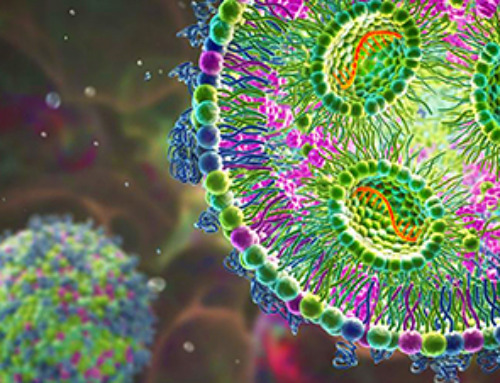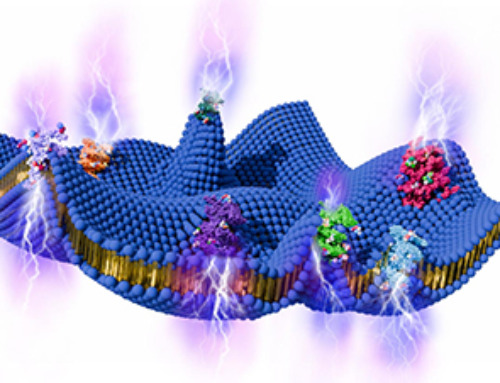Researchers have pinpointed specific variants in a gene that significantly raise the likelihood of developing various cancer types. This discovery has the potential to enhance early detection and facilitate personalized treatments for diverse populations.
Scientists have identified over 5,000 genetic variants that help certain cancers thrive, as well as a potential therapeutic target that could treat or possibly prevent these cancers from developing.
Researchers from the Wellcome Sanger Institute, and their collaborators at The Institute of Cancer Research, London, and the University of Cambridge assessed the health impact of all possible genetic changes in the 'tumour protection' gene, BAP1. They found around a fifth of these possible changes were pathogenic, significantly increasing the risk of developing cancers of the eye, lung lining, brain, skin, and kidney.
The findings, published in Nature Genetics, are freely available so that they can be immediately used by doctors to help diagnose patients and choose the most effective therapies for them. Importantly, as all possible variants were assessed, the findings benefit individuals from diverse ethnic backgrounds, who have historically been underrepresented in genetics research.
Potential for New Cancer Therapies
The team also uncovered a link between certain disruptive BAP1 variants and higher levels of IGF-1, a hormone and growth factor. This discovery opens the door to developing new drugs that could inhibit these harmful effects, potentially slowing down or preventing the progression of certain cancers.
The BAP1 protein acts as a powerful tumor suppressor in the body, protecting against cancers of the eye, lung lining, brain, skin, and kidney. Inherited variants that disrupt the protein can increase a person's lifetime risk of developing these cancers by up to 50 per cent, typically occurring around middle age.
Detecting these variants early through genetic screening can guide preventative measures, greatly enhance treatment effectiveness, and improve the quality of life for individuals affected. However, until now, there has been limited understanding of which specific genetic changes in BAP1 to look out for, especially for rare variants that cause it to malfunction and fuel cancer growth.
Researchers from the Sanger Institute, and their collaborators at The Institute of Cancer Research and the University of Cambridge tested all 18,108 possible DNA changes in the BAP1 gene by artificially altering the genetic code of human cells grown in a dish, in a process known as 'saturation genome editing'. They identified that 5,665 of these changes were harmful and disrupted the protein's protective effects. Analysis of UK Biobank data confirmed that individuals carrying these harmful BAP1 variants are over ten percent more likely to be diagnosed with cancer than the general population.
Link Between BAP1 Variants and IGF-1 Levels
The team also discovered that people with harmful BAP1 variants have elevated levels of IGF-1 in their blood, a hormone linked to both cancer growth and brain development. Even individuals without cancer showed these elevated levels, suggesting that IGF-1 could be a target for new treatments to slow down or prevent certain cancers. Further analysis revealed harmful BAP1 variants and higher IGF-1 levels were linked to worse outcomes in uveal melanoma patients, highlighting the potential for IGF-1 inhibitors in cancer therapy.
Notably, the technique profiles all possible BAP1 variants from diverse populations, not only those prevalent in European clinical records, helping to address the underrepresentation of non-European populations in genetic studies.
Dr Andrew Waters, first author of the study at the Wellcome Sanger Institute, said: "Previous approaches for studying how variants affect function in genes have been on a very small scale, or exclude important contexts that may contribute to how they behave. Our approach provides a true picture of gene behavior, enabling larger and more complex studies of genetic variation. This opens up new possibilities for understanding how these changes drive disease."
Professor Clare Turnbull, clinical lead of the study, Professor of Translational Cancer Genetics at The Institute of Cancer Research, London, and Consultant in Clinical Cancer Genetics at The Royal Marsden NHS Foundation, said: "This research could mean more accurate interpretation of genetic tests, earlier diagnoses and improved outcomes for patients and their families."
Dr David Adams, senior author of the study at the Wellcome Sanger Institute, said: "We want to ensure that life-saving genetic insights are accessible and relevant to all people, regardless of their ancestry. Our aim is to apply this technique to a wider range of genes, potentially covering the entire human genome in the next decade with the Atlas of Variant Effects."
Reference: "Saturation genome editing of BAP1 functionally classifies somatic and germline variants" by Andrew J. Waters, Timothy Brendler-Spaeth, Danielle Smith, Victoria Offord, Hong Kee Tan, Yajie Zhao, Sofia Obolenski, Maartje Nielsen, Remco van Doorn, Jo-Ellen Murphy, Prashant Gupta, Charlie F. Rowlands, Helen Hanson, Erwan Delage, Mark Thomas, Elizabeth J. Radford, Sebastian S. Gerety, Clare Turnbull, John R. B. Perry, Matthew E. Hurles and David J. Adams, 5 July 2024, Nature Genetics.
DOI: 10.1038/s41588-024-01799-3
The study was funded by the Wellcome Trust and Cancer Research UK.
News
Nanomedicine in 2026: Experts Predict the Year Ahead
Progress in nanomedicine is almost as fast as the science is small. Over the last year, we've seen an abundance of headlines covering medical R&D at the nanoscale: polymer-coated nanoparticles targeting ovarian cancer, Albumin recruiting nanoparticles for [...]
Lipid nanoparticles could unlock access for millions of autoimmune patients
Capstan Therapeutics scientists demonstrate that lipid nanoparticles can engineer CAR T cells within the body without laboratory cell manufacturing and ex vivo expansion. The method using targeted lipid nanoparticles (tLNPs) is designed to deliver [...]
The Brain’s Strange Way of Computing Could Explain Consciousness
Consciousness may emerge not from code, but from the way living brains physically compute. Discussions about consciousness often stall between two deeply rooted viewpoints. One is computational functionalism, which holds that cognition can be [...]
First breathing ‘lung-on-chip’ developed using genetically identical cells
Researchers at the Francis Crick Institute and AlveoliX have developed the first human lung-on-chip model using stem cells taken from only one person. These chips simulate breathing motions and lung disease in an individual, [...]
Cell Membranes May Act Like Tiny Power Generators
Living cells may generate electricity through the natural motion of their membranes. These fast electrical signals could play a role in how cells communicate and sense their surroundings. Scientists have proposed a new theoretical [...]
This Viral RNA Structure Could Lead to a Universal Antiviral Drug
Researchers identify a shared RNA-protein interaction that could lead to broad-spectrum antiviral treatments for enteroviruses. A new study from the University of Maryland, Baltimore County (UMBC), published in Nature Communications, explains how enteroviruses begin reproducing [...]
New study suggests a way to rejuvenate the immune system
Stimulating the liver to produce some of the signals of the thymus can reverse age-related declines in T-cell populations and enhance response to vaccination. As people age, their immune system function declines. T cell [...]
Nerve Damage Can Disrupt Immunity Across the Entire Body
A single nerve injury can quietly reshape the immune system across the entire body. Preclinical research from McGill University suggests that nerve injuries may lead to long-lasting changes in the immune system, and these [...]
Fake Science Is Growing Faster Than Legitimate Research, New Study Warns
New research reveals organized networks linking paper mills, intermediaries, and compromised academic journals Organized scientific fraud is becoming increasingly common, ranging from fabricated research to the buying and selling of authorship and citations, according [...]
Scientists Unlock a New Way to Hear the Brain’s Hidden Language
Scientists can finally hear the brain’s quietest messages—unlocking the hidden code behind how neurons think, decide, and remember. Scientists have created a new protein that can capture the incoming chemical signals received by brain [...]
Does being infected or vaccinated first influence COVID-19 immunity?
A new study analyzing the immune response to COVID-19 in a Catalan cohort of health workers sheds light on an important question: does it matter whether a person was first infected or first vaccinated? [...]
We May Never Know if AI Is Conscious, Says Cambridge Philosopher
As claims about conscious AI grow louder, a Cambridge philosopher argues that we lack the evidence to know whether machines can truly be conscious, let alone morally significant. A philosopher at the University of [...]
AI Helped Scientists Stop a Virus With One Tiny Change
Using AI, researchers identified one tiny molecular interaction that viruses need to infect cells. Disrupting it stopped the virus before infection could begin. Washington State University scientists have uncovered a method to interfere with a key [...]
Deadly Hospital Fungus May Finally Have a Weakness
A deadly, drug-resistant hospital fungus may finally have a weakness—and scientists think they’ve found it. Researchers have identified a genetic process that could open the door to new treatments for a dangerous fungal infection [...]
Fever-Proof Bird Flu Variant Could Fuel the Next Pandemic
Bird flu viruses present a significant risk to humans because they can continue replicating at temperatures higher than a typical fever. Fever is one of the body’s main tools for slowing or stopping viral [...]
What could the future of nanoscience look like?
Society has a lot to thank for nanoscience. From improved health monitoring to reducing the size of electronics, scientists’ ability to delve deeper and better understand chemistry at the nanoscale has opened up numerous [...]





















